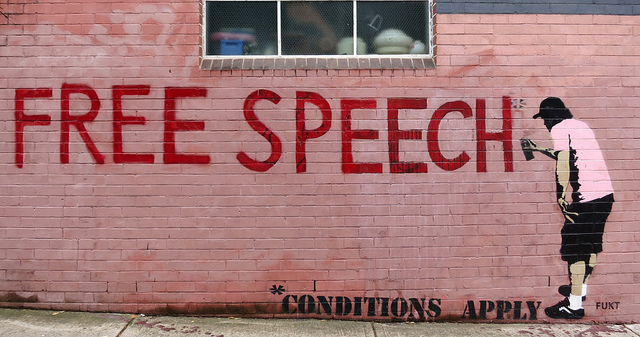Donald Trump
Blog
Big Tech’s Rejection of Parler Shuts down a Site Favored by Trump Supporters – and Used by Participants in the US Capitol Insurrection
January 20, 2021By Alex Newhouse Early in the morning of Jan. 11, the social media platform Parler went offline after Amazon withdrew the platform’s web hosting services. Parler sued Amazon in response. Amazon’s move followed Google and Apple’s banning the Parler app from their app stores. The tech companies cited the platform’s inability or unwillingness to block calls for and threats of ...
Blog
QAnon and the Storm of the U.S. Capitol: The Offline Effect of Online Conspiracy Theories
January 13, 2021By Marc-André Argentino What is the cost of propaganda, misinformation and conspiracy theories? Democracy and public safety, to name just two things. The United States has received a stark lesson on how online propaganda and misinformation have an offline impact. For weeks, Donald Trump has falsely claimed the November presidential election was rigged and that’s ...
Blog
From the French Revolution, the First Amendment and the Third Reich to Twitter and Facebook: The Impact of Legal Histories on the Fight Against Online Extremism – Part 2: The United States
February 19, 2020By Nery Ramati The need to develop legal tools in order to cope with the dangers of online extremism and terrorism has been an issue that has kept legislators, government officials, and security forces around the globe very busy in recent years. In liberal democracies, the legal challenges are intensified due to the obvious dangers ...
Blog
An Overview of Radical Right-focused Presentations at #TASMConf 2019
July 10, 2019By Pamela Ligouri Bunker and Robert J. Bunker The 2019 Terrorism and Social Media (TASM) Conference took place on 25 and 26 June 2019 at Swansea University Bay Campus, Wales, United Kingdom. The conference was organised by Swansea University’s Hillary Rodham Clinton School of Law and its Cyber Threats Research Centre (CYTREC), with the support ...
Blog
Tracing Transnational Linkages on Twitter: Mapping Indian Diaspora Supporters of Brexit and Trump
February 20, 2019By Eviane Leidig A lacuna exists in the study of the radical right whereby researchers focus disproportionately on developments in Europe and North America. Yet, countries such as India, the Philippines, Turkey, and Brazil highlight how the radical right can operate, and indeed flourish, beyond the West. Our failure to incorporate these non-Western case studies poses ...
Blog
Upvoting Extremism, Part II: An Assessment of Extreme-Right Discourse on Reddit
December 5, 2018By Tiana Gaudette, Garth Davies, and Ryan Scrivens This blog is Part II of II. Click here for Part I. This blog is the second of a two-part series that was presented at the ‘VOX-Pol Conference – Violent Extremism, Terrorism, and the Internet: Present and Future Trends’ in Amsterdam on 20 August 2018. Last week on ...
Blog
Upvoting Extremism, Part I: An Assessment Of Extreme Right Discourse On Reddit
November 28, 2018By Tiana Gaudette, Garth Davies, and Ryan Scrivens This blog is the first of a two-part series; it was originally presented at the ‘VOX-Pol Conference – Violent Extremism, Terrorism, and the Internet: Present and Future Trends’ in Amsterdam on 20 August 2018. Like other extremist movements, right-wing extremists from across the globe have exploited the power of the ...
Blog
New digital methods can be used to analyse linguistic terms and better understand Reddit communities
November 15, 2017By Tim Squirrell Reddit is now the fourth most visited website in the US. Yet, surprisingly, given its position as an extremely large community, it has been the subject of relatively little research. Tim Squirrell has developed methods of studying the genealogy, spread, and use of particular words on Reddit, as demonstrated by this case ...
Blog
Are There Limits to Online Free Speech?: Part II
February 8, 2017By Alice E. Marwick This post is part II of the series. Please click here to read part I. Free Speech and a Free Internet In 1997, the Supreme Court ruled in the landmark Reno v. ACLU case that internet speech deserved the same free speech protections as spoken or written speech. Justice John Paul Stevens wrote in the majority ...
Blog
Are There Limits to Online Free Speech?: Part I
February 1, 2017By Alice E. Marwick This post is part I of the series. Please click here to read part II. In November 2016, Twitter shut down the accounts of numerous alt-right leaders and white nationalists. Richard Spencer, the head of the National Policy Institute and a vocal neo-Nazi, told the LA Times it was a violation of his free ...









